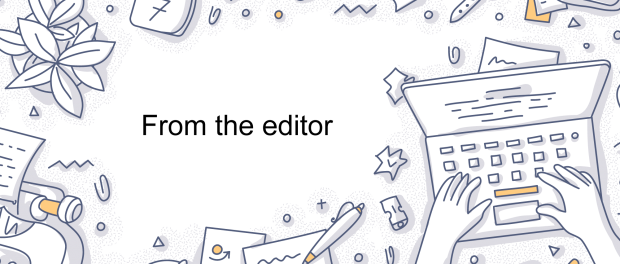The hope of togetherness
Embracing the challenges, sharing the successes

By the time this issue is published we will hopefully be back to something closer to our pre-pandemic selves. For me, the summer brought with it significant time to heal, rest, and rejuvenate personally and professionally. I know it did the same for many of my colleagues in publicly-funded education and in the greater labour movement. We have come through, blurry-eyed and changed, but also hopefully optimistic about where we can go as a society that prioritizes wellness, equity, and care for others. Personally, one event in particular reminded me of what we have lost and what we have gained.
Our Presidents’ Symposium ran August 17–20 this summer, and as a member of the delivery team, I found myself on-site for the production of the virtual event. Even with all social and physical distancing protocols in place, it was still a remarkable experience to work again with people in physical proximity to me. It was a boon to my soul to feel the creative energy and comradery in the workspace; something I know many of us lost as we moved to our virtual and locked-down lives. Despite the long days and nights delivering the event in August, I left feeling recharged, particularly by the strength of teamwork and the power of collaboration. I left thinking of how the pieces of our lives are all so deeply entwined, and how vital social interaction is to our shared humanity.
This issue of Education Forum explores a lot of what it means to work collaboratively and to be a force for unity. In “Closing the gap” the UNHCR’s Lauren La Rose posits the vital role education plays in youth development, especially for youth in refugee camps around the world. She writes of the creative ways educators are delivering learning to youth in camps, ensuring students can still access education, often one of the most normalizing elements of a refugees’ chaotic existence in a refugee camp.
Similarly, Lana Parker and Helen Liu move us through the challenges students face as they navigate the often mis- and disinformation-filled life of social media, in “The new information environment: Lies, truth, misinformation, and disinformation.” The piece exposes some long-term dangers of online information sharing and cites the growing inequalities that our COVID-19 existence has highlighted. It urges education and institutional knowledge to grow to include the multiliteracies youth will need as we move back to our in-person lives, while still engaging with the now boundless world of online information sharing.
We read in Derik Chica’s article “The SRO program: Whose experiences are we centring?” the reasons we stand against normalized, systemic racism. His personal stories of experiencing targeted racism and his work dismantling the School Resource Officer program in the Toronto District School Board demonstrate how to reclaim power and recentre the experiences of Black, racialized, and Indigenous youth in our schools.
I see judy mckeown’s piece “Social media for social change: Using untraditional modes of communication to dismantle anti-Black racism within OSSTF/FEESO” as a template for moving between online and in-person activism. She details the transformational power of online organizing, especially as a tool for dismantling anti-Black racism and other colonial structures. We have seen the efficacy and accessibility of online activism and are reminded in this piece of its continuing power and the ways online organizing will shape the new reality of in-person activism. This mix of online and in-person activism will be a doubly powerful tool as we head into the provincial election cycle this spring. It will take the village of labour to work together, virtually and in-person, to bring about the political change we so desperately need if we want to remove the Conservative government from power in this province. This is how we will protect and enhance our publicly-funded education system and the other social programs we hold dear in a just society.
I hope this issue provides you with some inspiration to become engaged, to re-engage, or to change how you engage in your post-pandemic life. I hope it brings you a reminder of where we were and where we can go. I also hope this issue arrives to you in wellness and provides a bit of hope for a better, brighter, more equitable, and safer tomorrow.
In solidarity,
Tracey Germa, Editor

Leave a comment